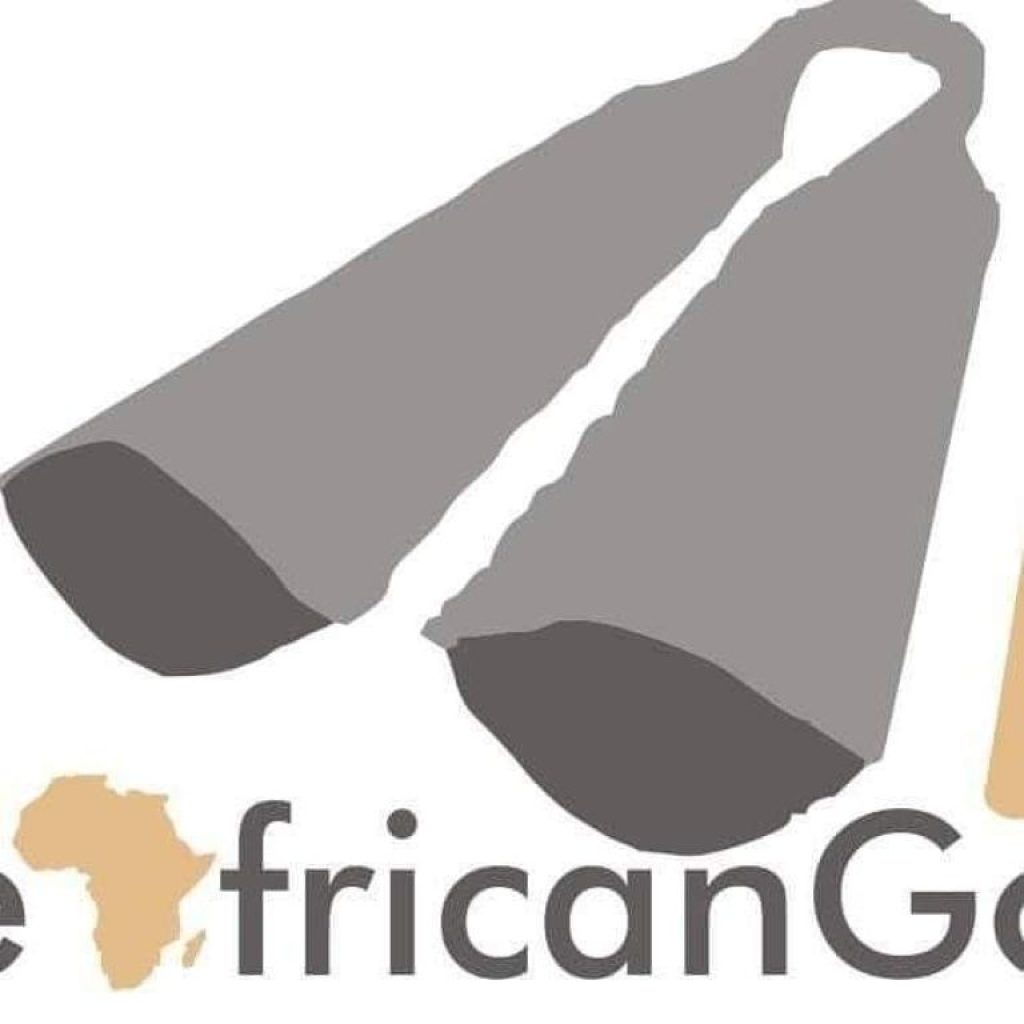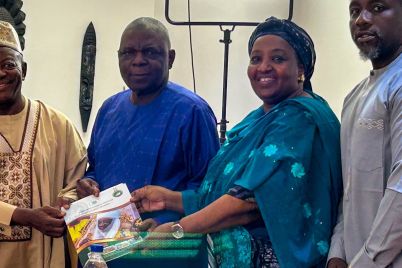
By Prof Wasui Babalola.
On July 13, 2025, Nigeria mourned the passing of one of its most consequential post-independence leaders, President Muhammadu Buhari (GCFR). After a brief illness, his death marked the end of an era defined by both resilience and reform. As the nation reflects on his legacy, the hospitality and tourism industry recognises with deep appreciation one of his most transformative, yet often understated, contributions: his assent to the National Institute for Hospitality and Tourism (NIHOTOUR) Establishment Act, 2022. In a sector that had been plagued by years of policy neglect, fragmented training structures, and weak institutional capacity, this Act offered a fresh start and institutional legitimacy for long-overdue reforms.
The passage of the NIHOTOUR Act under President Buhari’s administration was a landmark legislative intervention aimed at correcting historical imbalances in one of Nigeria’s most promising non-oil sectors. It formally established NIHOTOUR as the apex regulatory and capacity-building institution for the hospitality and tourism ecosystem, granting it the legal authority to standardise training, certification, and research activities across the country. This was not merely a bureaucratic gesture, it was a visionary step towards professionalising a sector that has the potential to generate millions of jobs and serve as a vehicle for cultural diplomacy, economic diversification, and sustainable development.

Although the tourism community had long advocated for the creation of a standalone Ministry of Tourism to spearhead national policy and investment strategies, President Buhari offered something just as substantial, a legal framework that empowers the industry from the ground up. The NIHOTOUR Act provides a structural foundation for building a skilled workforce, formalising informal sector activities, and bridging the gap between tourism education and industry practice. It signified recognition at the highest level that Nigeria’s tourism future would not be built by slogans, but by institutions, standards, and people.
Today, the NIHOTOUR Act stands as a symbol of policy vision and commitment to the long-term sustainability of hospitality and tourism in Nigeria. For professionals, entrepreneurs, educators, and investors, it is a beacon of hope, an affirmation that the government sees value in this sector and is willing to invest in its future. As stakeholders continue to bicker over its full implementation and necessary refinements, there is no doubt that this singular Act may one day be remembered as one of President Buhari’s most enduring legacies, not just for the tourism sector, but for national development as a whole.
An Institutional Framework Long Overdue
Before the passage of the NIHOTOUR Act 2022, Nigeria’s hospitality and tourism industry operated in a largely unregulated and inconsistent environment. Despite being a high-potential sector with the capacity to drive inclusive economic growth, job creation, and cultural diplomacy, it suffered from a chronic lack of structure. Training institutions existed, but there was no unifying curriculum or standard to guide learning outcomes. As a result, training efforts were fragmented and often not aligned with global industry requirements.

This structural gap affected every layer of the workforce – from front office staff and chefs to tour guides, cleaners, security operatives, and hotel managers. Many professionals in the sector acquired their skills informally, often through apprenticeship or on-the-job learning. While this system produced some competent hands, it also led to the proliferation of substandard practices, poor service delivery, and a lack of professionalism. Without a recognised path for certification and career progression, workers were limited in their capacity to grow, and the industry as a whole lacked competitiveness.
Moreover, the absence of a regulatory framework meant that operators could enter and exit the industry without any quality control, thereby weakening consumer trust and limiting investor confidence. This lack of structure also made it difficult for the government to harness the sector’s full potential in terms of investments, formal employment data, and strategic planning. Tourism policies were often crafted in isolation, without a solid base of trained human capital to support implementation.
The NIHOTOUR Act 2022, therefore, marked a turning point. It established a legal and institutional foundation to address these longstanding challenges by empowering NIHOTOUR as the body for training, research, regulation, and professional development in the sector. The Act mandates the Institute to develop and implement standardised curricula, conduct professional examinations, accredit training centres, and issue recognised certificates, including collaborations with existing Institutes and government institutions in achieving its mandates. This not only gives legitimacy to tourism and hospitality training but also introduces accountability and structure into the system.
By placing capacity building at the centre of national development through the tourism and hospitality sector, the NIHOTOUR Act serves as both a policy instrument and a nation-building tool. It provides a clear pathway for skills development, career advancement, and professional recognition, regardless of one’s background or entry point into the industry. It ensures that the sector no longer depends on informal structures alone but is built on a solid institutional framework that fosters excellence, professionalism, and global relevance.
Building Uniformity and Global Competence
This legislation has the potential to revolutionise the entire landscape of workforce development within Nigeria’s hospitality and tourism sector. For the first time, the nation has a legally backed framework that integrates both skilled and unskilled labour into a structured system of education, certification, and professional recognition. By formalising training processes and promoting structured capacity building, the Act ensures that the entire spectrum of the workforce – whether in hotels, restaurants, airlines, cultural heritage sites, or tourism enterprises – can now access credible, recognised pathways to professional growth. This is a major leap forward in a sector where informal employment and low standards have long hindered progress.
One of the Act’s most powerful provisions is its commitment to promoting uniformity in professional standards across all states and regions. Regardless of whether a hospitality worker is based in Lagos, Jos, Owerri, or Sokoto, the NIHOTOUR Act ensures a common baseline of competencies, ethics, and expectations. This national consistency is critical not just for service delivery but also for improving customer experience and investor confidence. Furthermore, it lays the groundwork for the creation of a national database of certified professionals, ensuring that only qualified individuals are engaged across various roles within the industry.
Importantly, the Act introduces modern mechanisms such as competency-based education and the periodic accreditation of training centres, thereby creating a self-sustaining and quality-assured training ecosystem. Institutions that meet these rigorous standards will be empowered to produce highly competent graduates, while those that fall short will be required to improve or risk losing accreditation. In this way, the law doesn’t just train individuals, it compels institutions to raise their game and align with both national priorities and global expectations. The mandate to collaborate with both local and international institutions further ensures that Nigerian professionals remain competitive on the global stage, learning from the best and benchmarking against the most successful models.
These visionary provisions point to a deeper understanding of what it takes to build a future-ready tourism economy, one that is resilient, inclusive, and performance-driven. The NIHOTOUR Act anticipates future demand by fostering innovation, encouraging digital adoption, and enhancing entrepreneurial thinking in training design and delivery. It invites both the public and private sectors to become active participants in shaping a dynamic, responsive workforce. With proper implementation, this legislation will not only enhance Nigeria’s domestic tourism experience but also position the country as a formidable destination of choice in the global hospitality landscape.
Recognising Legislative Gaps — A Call for Unity
As with many ambitious and progressive legislative instruments, the NIHOTOUR Establishment Act 2022 is not without its imperfections. While it provides a much-needed institutional framework for the tourism and hospitality industry, stakeholders across the sector have raised concerns about specific ambiguities and inconsistencies within the law. Chief among these are unclear boundaries regarding the Institute’s regulatory authority, the absence of clearly defined working relationships with existing professional bodies except as literarily provided under Section 4(r), and a lack of synchronisation with
overarching national tourism development strategies. These gaps, if not urgently addressed, may hinder the full implementation and impact of this otherwise groundbreaking legislation.
For instance, some sections of the Act appear to suggest regulatory exclusivity by NIHOTOUR, which could potentially overlap with or undermine the long-standing functions of industry-specific professional associations and certifying bodies. Without clarity and cohesion, there is a risk of duplication, and weakened stakeholder trust, all of which could erode the very gains the Act seeks to institutionalise.
This is precisely why the current moment demands unity, dialogue, and constructive engagement. Rather than allowing legislative gaps to breed division, now is the time for all stakeholders to come together to shape a common vision. Hospitality and tourism associations, public institutions, regulatory authorities, investors, academia, and training providers must convene at a roundtable to address the identified concerns. Through lawful amendments if need be, strategic policy alignment, and practical implementation frameworks, we can ensure that the Act serves all players equitably and effectively. Moreover, collaboration should not be limited to legal refinement alone. It must extend into joint capacity building, mutual recognition of certifications, coordinated public-private partnerships, and shared accountability mechanisms. A harmonised framework, where NIHOTOUR works in synergy with sectoral institutes, training bodies, and regulators, will ensure that quality, relevance, and consistency are preserved without displacing established standards. This spirit of cooperation and collaboration will also reassure international development partners and investors who seek coherence and clarity before committing to sectoral interventions.

Importantly, the industry must resist the temptation to retreat into silos or turf protectionism. The future of Nigerian tourism lies in convergence, not fragmentation. The NIHOTOUR Act should be seen as a foundation, not a final destination. As the sector evolves, so too must our legislative and institutional responses. With periodic review, inclusive governance, and open channels of communication, the Act can become a living document, responsive to the needs of a dynamic, diverse, and globally competitive industry. We must align our collective ambition with the spirit of the law, not just its letter.
Ultimately, this is a defining moment for Nigeria’s hospitality and tourism sector. We can choose to interpret the gaps in the NIHOTOUR Act as obstacles, or we can see them as invitations to lead, to collaborate, and to innovate. The pathway to progress lies in unity. Only by working together can we refine the Act, unlock its full potential, and chart a sustainable course for the sector’s growth. The time for coordinated action is now.
Honouring a Legacy
The hospitality and tourism industry in Nigeria owes the late President Muhammadu Buhari immense gratitude for granting the sector one of its most important legislative milestones, the NIHOTOUR Establishment Act 2022. Though his administration did not create the long-demanded standalone Ministry of Tourism, it gave the industry something equally profound: a statutory framework for human capital development and professional standardisation. The Act signaled, perhaps for the first time at the federal level, a genuine recognition of tourism and hospitality as strategic pillars of Nigeria’s national development agenda.
As the nation mourns the passing of President Buhari, let us honour his contribution by refusing to allow this historic legislation to gather dust. Let us breathe life into its vision through action, by implementing structured training, expanding accredited programmes, strengthening institutional capacity, and promoting cooperation, collaboration and awareness among stakeholders. The Act must be used to create real impact: jobs generated, skills upgraded, tourism standards enforced, and Nigeria’s global reputation enhanced through quality service delivery and cultural excellence.
Ultimately, the NIHOTOUR Act offers the Nigerian hospitality and tourism industry a defining moment, one that can shape the trajectory of the sector for decades to come. President Muhammadu Buhari may have departed, but the legacy he left through this legislative action lives on. Let us safeguard it, strengthen it, and most importantly, use it to build a future that is inclusive, professional, and globally competitive. This is how we should honour his legacy, not only with words of appreciation but with bold, unified, and strategic action.
Indeed, if given the full weight of implementation, the NIHOTOUR Act 2022 has the potential to stand as one of the most transformative legacies of President Muhammadu Buhari’s administration. It is more than a legislative milestone, it is a blueprint for national capacity development, economic revitalisation, and cultural reawakening through tourism and hospitality.

This Act represents a rare convergence of vision, policy, and potential, offering Nigeria a structured pathway to unlock the immense value embedded in its people, places, and traditions. This Act stands as a milestone achievement and, if properly implemented, will become one of the most enduring legacies of the late president’s administration.
As the nation bids farewell to a leader whose impact will be debated for years to come, let us ensure that this particular legacy does not remain an unrealised aspiration. Let it ignite a renewed commitment among all stakeholders to build a thriving, standardised, and globally respected tourism industry. In honouring his memory, may we turn this Act into action and allow President Buhari’s foresight to continue shaping progress long after his passing.
May his soul rest in peace. May his legacy continue to inspire progress.
by
Professor Wasiu Adeyemo Babalola,
a Professor of Hotel Management & Tourism at Atiba University Oyo, Director of the African Travel Commission (ATC) and Fellow of the Institute of Hospitality, UK (IoH); Nigeria Hotel & Catering Institute (NHCI); Hospitality & Tourism Management Association of Nigeria (HATMAN); Institute of Tourism Professionals of Nigeria (ITPN), Institute of Hospitality Accountants & Revenue Managers (IHArm), and the Association of Professional Chefs in Nigeria (APCN)


